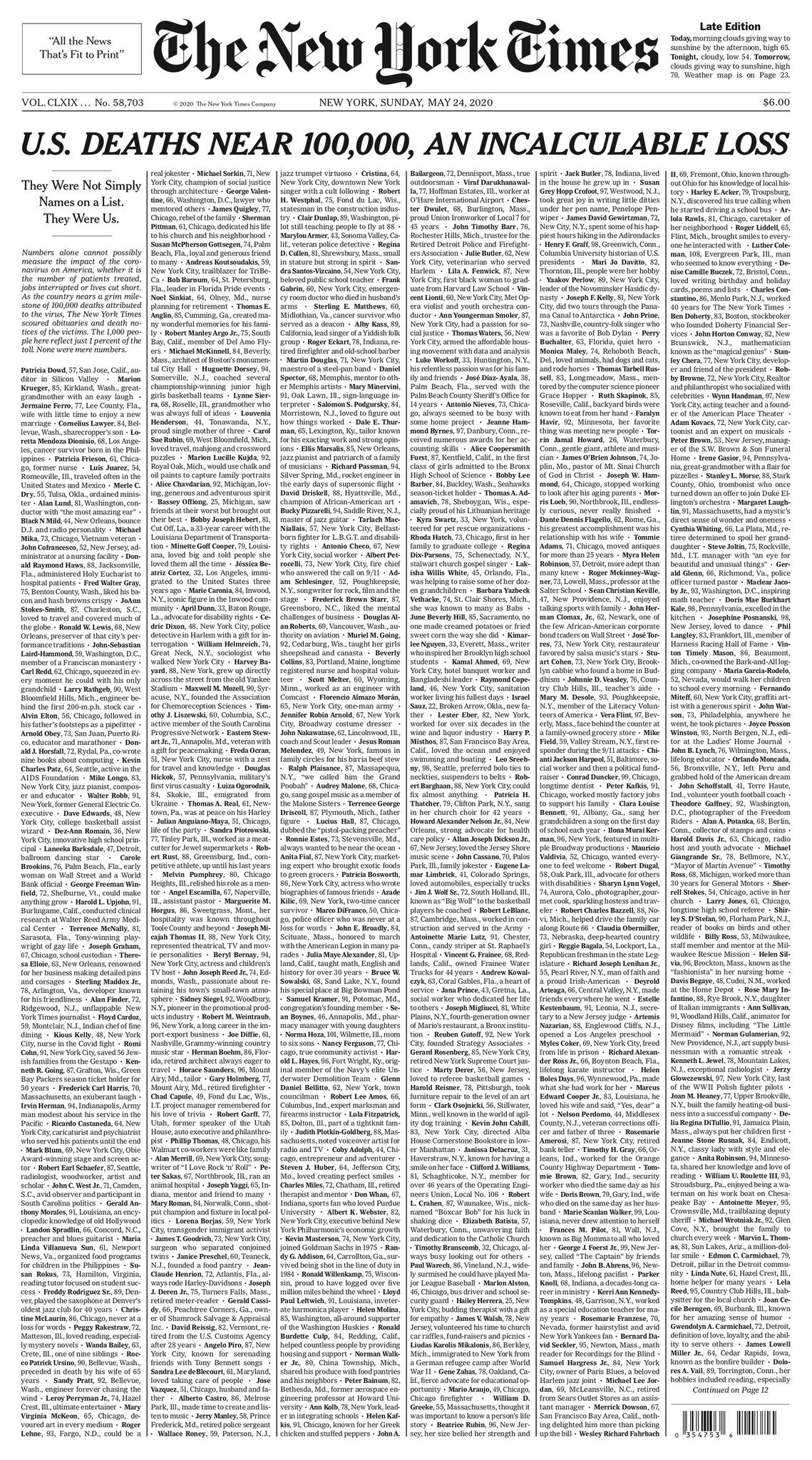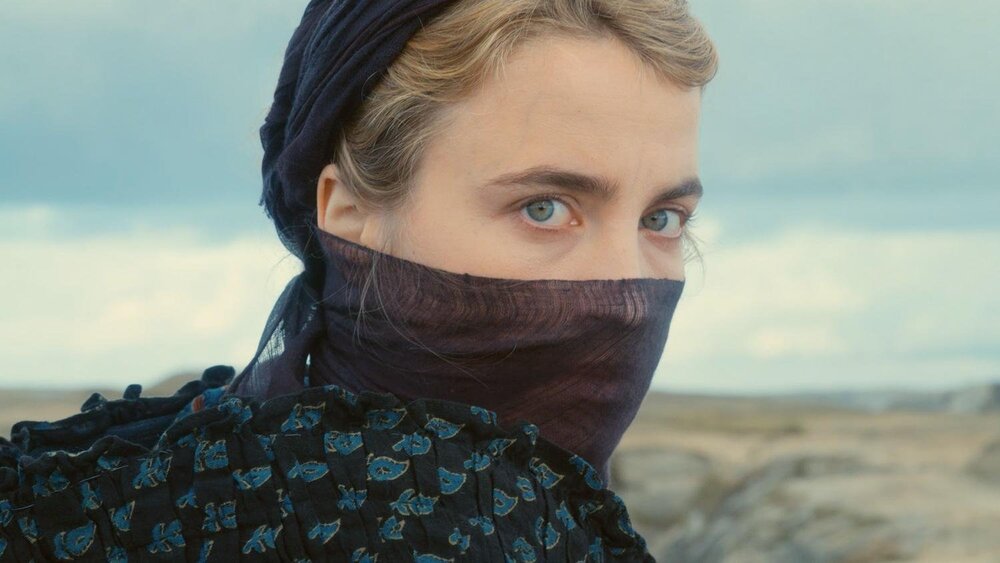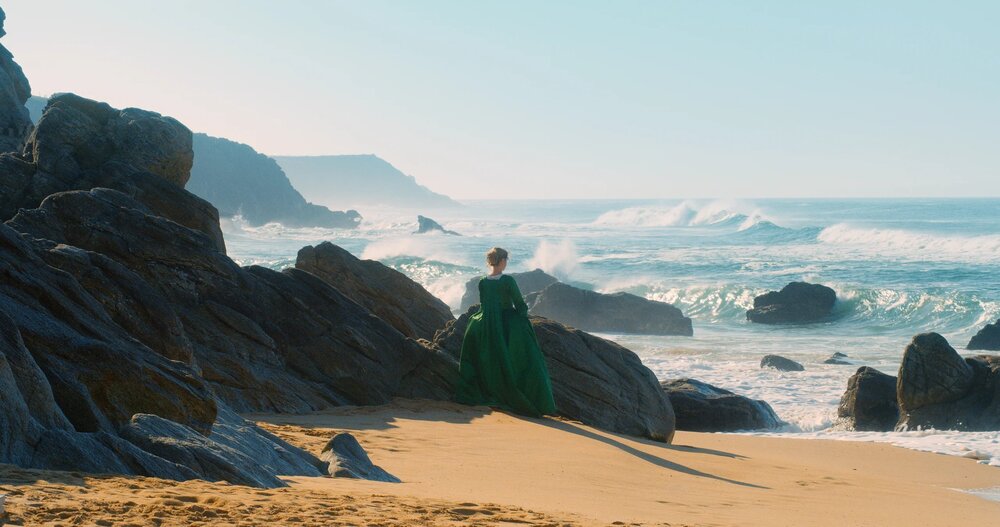World keeps changing fast
‘The irreducible sadness of all these deaths’
People are dying in hospitals and dying at home. The official tolls are almost certainly an undercount. The morgues are overflowing. Those are the facts. But where is the grief? When we first started getting the news out of Italy, and then Spain, with frightening daily numbers comparable with what is now happening in New York, that news seemed to be delivered with holy awe. In El País, for example, each day's news was led by the previous day's dead, a number that was often in the paper's main headline. In the American papers, I usually have to do some searching to find how many people have died in the past day. The front pages here seem to often carry news of the financial markets or of the political squabbles of the day. But what I want is to be directly confronted with the fact, the enormity, the irreducible sadness of all these deaths.

The story behind the page design
A scene from the early days of lockdown in Wuhan
Schools are suspended until further notice. With many workplaces also shut, notoriously absent Chinese fathers have been forced to stay home and entertain their children. Video clips of life under quarantine are trending on TikTok. Children were presumably glad to be off school – until, that is, an app called DingTalk was introduced. Students are meant to sign in and join their class for online lessons; teachers use the app to set homework. Somehow the little brats worked out that if enough users gave the app a one-star review it would get booted off the App Store. Tens of thousands of reviews flooded in, and DingTalk's rating plummeted overnight from 4.9 to 1.4. The app has had to beg for mercy on social media: 'I'm only five years old myself, please don't kill me.'
One of the one-star reviews:
Thank you so much DingTalk for making me feel the warmth of coronavirus even though I am not in Wuhan. I am giving you five stars, but in installments.
Essential workers are just forced laborers
The situation is so stark that we can ask whether extreme economic circumstances have turned the workers we call heroes into something closer to forced labor. If so, that realization ought to shape our public policies: A just society owes much more than minimal pay and a few plexiglass shields to the citizens — and noncitizens — it compels into service.
In theory, the prospect of employees simply walking away ought to put pressure on employers. But in addition to a lack of jobs, the structure of American unemployment-insurance programs also encourages workers to stay put. Although Congress, as part of its coronavirus relief bill, increased unemployment insurance (adding a bonus on top of state benefits), it retained the basic rule that people who leave their jobs voluntarily do not qualify for compensation. Since the job market has collapsed, this means that for essential workers, the only alternative to staying in an unsafe job is unemployment without benefits—not a viable option.
The exploitation comes not just from employers exercising monopsony power, but also the pressure of the government and the public. Recall Senator Lindsey Graham objecting to a bill to raise unemployment benefits because raising them would disincentivize nurses from working. So employers and the government have both coerced essential workers into providing hazard labor uncompensated.
The 'essentiality' of this labor, which theoretically would give labor bargaining power to raise wages, is turned against their suppliers by a cynical appeal to an unspoken duty to accept uncompensated hazards. In March, an emergency physician wrote this in The Atlantic:
How much risk do health-care workers have to take? Or, more bluntly: How many of us will die before we start to walk away from our jobs?… I've been to disasters all over the world, and I have always seen health-care providers pour in to help… But that sort of bravery, that work ethic, is not boundless. No one is so fearless or stupid as to discount all risks… Multiple studies have asked health-care providers whether they would go to work during various disaster scenarios. The answer is a resounding yes for earthquakes, floods, and even war. But pandemics are different.
Yes, physicians and nurses have an ethical duty to provide care…. We have an obligation to treat all patients, because we chose our profession and are well rewarded by society with money and respect… But there are few, if any, obligations for all the support staff that make my work possible—the techs, clerks, registrars, environmental staff. They don't take an oath. Some are paid minimum wage, have few benefits, and get none of the societal accolades reserved for doctors and nurses. Why should they die for a $25,000-a-year job and $10,000 worth of life insurance? Who's going to feed their kids when they're gone? When you're the one wearing a flimsy paper gown and mask in the same room as someone dying from an invisible virus that makes its home in the same air you breathe, nothing is simple.
The hair stands up on the back of my neck when I hear ethicists, hospital administrators, and politicians, sitting in their safe offices, lecture me on my obligation to die providing health- care. We don't take these risks because of an abstract "ethical duty"; we take them because it is what we do every time we walk into the chaos and danger of the emergency department. We do it because it is our job.
‘On the third day of the interview, the head of the department asks me if the courses I would be expected to teach should even exist’ (h/t Junho)
A beautifully written reflection on the academic job market by a scholar of fairy tales
In fairy tales, form is your function and function is your form. If you don't spin the straw into gold or inherit the kingdom or devour all the oxen or find the flour or get the professorship, you drop out of the fairy tale, and fall over its edge into an endless, blank forest where there is no other function for you, no alternative career. The future for the sons who don't inherit the kingdom is vanishment. What happens when your skills are no longer needed for the sake of the fairy tale? A great gust comes and carries you away.
The infinite heartbreak of loving Hong Kong
The Jakarta Method, by Vincent Bevins
I’ve been following the journalist Vincent Bevins on Twitter for a few years now as he's tweeted through progress on his book on the CIA's role in the Indonesian Communist Purge of the 1960s. The Jakarta Method is now out and I've been really surprised at how high-powered the press tour has been: I did not think the Times would ever touch the subject, let alone give it the frontpage headline "The 'Liberal World Order' Was Built With Blood" on their international edition. A catch is that it included the line, "No reasonable person denies the great things the United States did in the 20th century, or that many countries enjoyed prosperity while in happy alliances with Washington."
In my 13 years in Jakarta, the mass killings of the 1960s were basically a completely neglected topic in school so this was shamefully educational for me. The short version :
The "Jakarta Method" is rounding up and killing huge numbers of unarmed leftists, in the service of establishing a specific type of social order. By eliminating these people, this potential opposition, you clear the way for authoritarian capitalism at home and the creation of a geopolitical actor that fits into a growing, US-led system.
The short version is that the US-backed military used a rebellion as a pretext to launch a grotesque anti-communist propaganda campaign, round up and murder approximately 1 million leftists or accused leftists, and put another million in concentration camps…The mass slaughter of leftists in Indonesia was more than just another Washington-backed atrocity. It was the prototype for smashing the hopes and dreams of the Left in the developing world—for good.
I found Bevins' excerpt in the New York Review to be the best of the many appearances the book's made:
The rank-and-file card-carrying members of the unarmed Communist Party, who made up a large proportion of the victims, were also entirely innocent. They didn't do anything wrong at all, yet they were condemned to annihilation, and almost everyone around them was sentenced to a lifetime of guilt, trauma, and being told they had sinned unforgivably because of their association with the earnest hopes of left-wing politics.
When the conflict came, and when the opportunity arose, the US government helped spread the propaganda that made the killing possible and engaged in constant conversations with the Army to make sure the military officers had everything they needed, from weapons to kill lists. The US embassy constantly prodded the military to adopt a stronger position and take over the government, knowing full well that the method being employed to make this possible was to round up hundreds of thousands of people around the country, stab or strangle them, and throw their corpses into rivers. The Indonesian military officers understood very well that the more people they killed, the weaker the left would be, and the happier Washington would be.
May write more about this once I read my copy.
Is it OK to have a child?
A pre-quarantine read I’ve neglected to post. Meehan Crist's essay on childbearing in the climate change era is as good as everyone was saying:
The polar icecaps are melting. Is it OK to have a child? Australia is on fire. Is it OK to have a child? My house is flooded, my crops have failed, my community is fleeing. Is it OK to have a child? It is, in a sense, an impossible question. With her careful rhetorical shift from the intimate 'should I' to the more theoretical 'Is it OK to still have a child?' Ocasio-Cortez conjured the paradox of scale that haunts any consideration of the ethics of childbearing in a time of planet-wide catastrophe. Having a child is at once the most intimate, irrational thing a person can do, prompted by desires so deep we hardly know where to look for their wellsprings, and an unavoidably political act that increasingly requires one to confront not only the complex biopolitics of pregnancy and birth, but also the intersecting legacies of colonialism, racism and patriarchy, all while trying to wrap one's head around the relationship between the impossible extremes of the personal and the global."
Revisiting the essay is also a grim reminder that as recently as February, it appeared that the Australian wildfires were going to be the story of the year . Now it feels like a memory from another lifetime.
Rebecca Solnit on learning from a new generation of feminists
One of the pernicious myths of our time is that wisdom accumulates with age in some steady, standard way, like tree rings. In this scheme, the old have it and the young lack it, and should open their little beaks and wait for a worm of wisdom to be dropped in. Told this way, wisdom is also the result of individual development, rather than of how we as a society become better at seeing something, smarter about knowing how something works.
I was shaped by a world that no longer quite exists, so I can't imagine myself at, say, 18 in the present moment, because to do so is to imagine someone utterly different. She does not exist, and I—as we all do—exist as the cumulative effect of my experiences, opportunities or lack thereof, and ideals… There is no 18-year-old me, but there are plenty of 18 year olds to show me how much has changed, and to promise through their beautiful insubordination and high expectations that more is going to change.
Portrait de la jeune fille en feu
Two gorgeous stills:

